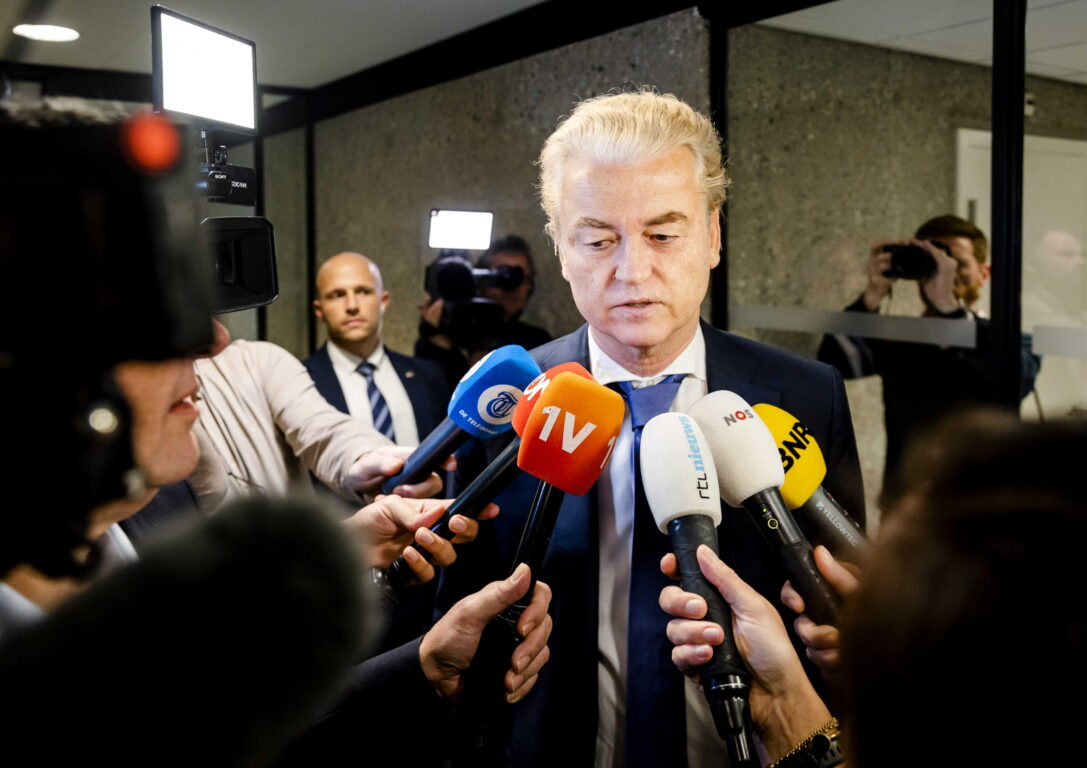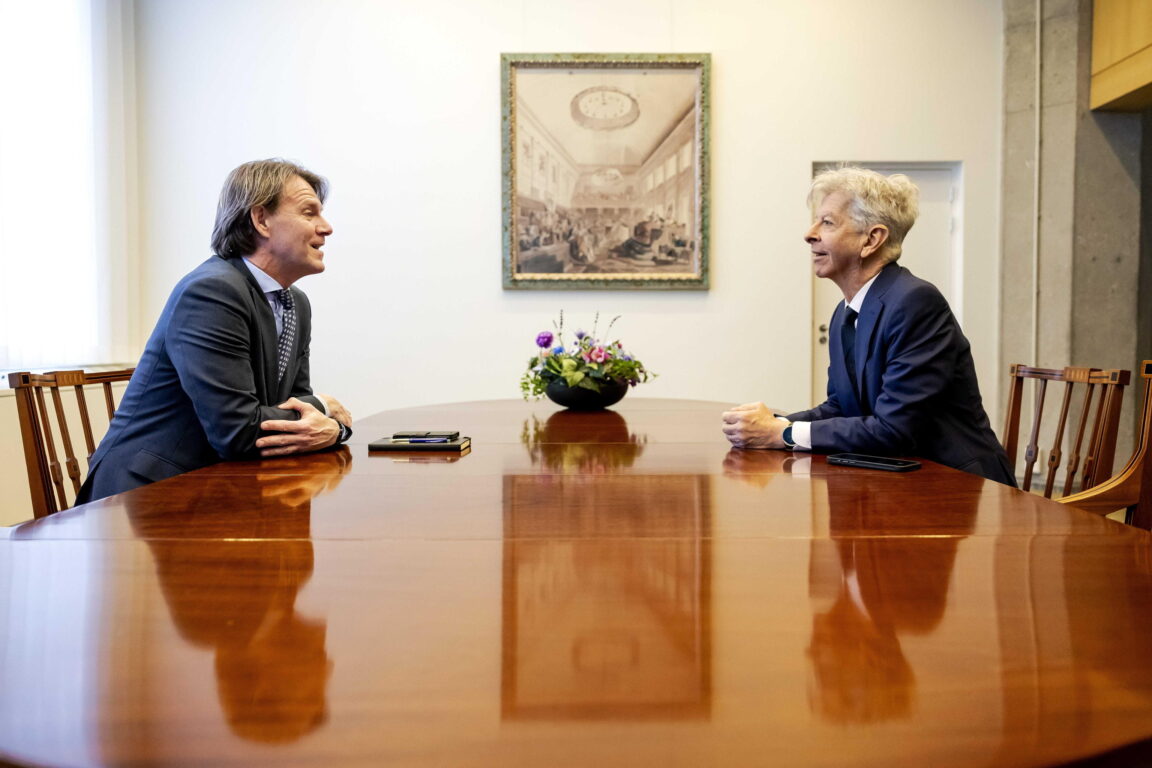Last Wednesday, Mark Rutte welcomed Cypriot President Nikos Christodoulides to the Netherlands. Two days later, he was in Kharkiv on a mission of high political value: visiting one of the cities hardest hit by two years of Russian bombing and signing a ten-year security pact with Ukraine. Today, much more relaxing meeting in The Hague with Luxembourg Prime Minister Luc Frieden. Everything is in order, if there was just one small detail: Rutte resigned as head of the Dutch government 8 months ago now. On July 7, 2023, Europe's longest-serving Prime Minister – at the helm of the Netherlands since 2010 – threw in the towel, surrendering to King Willem-Alexander his frustration over divisions within the majority on the question of reception of asylum seekers. . “The Netherlands are too tight for him, he is aiming for an important international position,” he quipped to several commentators behind the scenes. Possible. It is even probable, knowing that today his appointment as next Secretary General of NATO is almost complete. It is a shame that for 8 months Rutte remained “imprisoned” in the management of current affairs (and not only that) of his country. Because, despite an electoral vote which, in the meantime – more than 100 days ago – gave fairly clear indications on the feeling politics of the Dutch, there does not yet exist a government supported by a new and clear majority. And it's not even visible.
The Devil Wears Wilders
“Vince Wilders, the far right overwhelms Europe”, headline Republic last November 23. He also spoke of a “shock victory for the far right”. France 24of the “triumph of anti-Islam populist Geert Wilders”Associated Press. For days, the lanky profile of the leader of the Dutch sovereignists made headlines across Europe, giving substance to fears that what was celebrated during the November 22 elections in this Nordic country was an aperitif of this which will happen throughout the country. the EU in the European elections in June: a leap beyond the predictions of all the hard-right, anti-Islam parties, cold on civil rights and more or less secretly ready to abandon Ukraine to its fate. But it is precisely this shock caused by the “elimination” of the anti-system forces which has until now prevented Wilders from conquering the scepter of leadership of the Netherlands. His Freedom Party (PVV) obtained 23% of the votes, or 37 seats in the new Parliament. A lot, but much less than what is necessary to govern the country, obviously (at least 76 out of the 150 in the Lower House). With the accounts in hand, it immediately became clear that the most viable option for the formation of a new right-wing government was that of a four-party coalition. Alongside Wilders' PVV, Rutte's outgoing liberals (VVD, fallen to 24 seats under the leadership of Dilan Yeşilgöz but unavoidable) and the two new/surprises of the election: the New Social Contract (NSC) party of former Christian Democratic leader Pieter Omtzigt (20 seats) and the BBB peasant protest movement led by the passionate Caroline van der Plas (7 seats). Common traits: a more or less marked aversion to the left and to the “open society”. Differences: almost everything else.

Mexican spread
Since the week after the vote, when discussions between the four parties began, the issue has proven complicated. Yeşilgöz and Omtzigt, leaders of the two parties closest to the country's establishment, posed the biggest obstacles in negotiations with Wilders. Digestion of a government led by the “unpresentable” Wilders remains a complicated affair, and both parties are divided internally: find an acceptable deal in exchange for their own large group of ministers, or blow up the table in the name of defense of the Constitution. the anti-Islam and anti-EU attacks of the PVV, however at the risk of being punished by the voters? There is no definitive answer yet. Negotiations have been going on for four months now, and Parliament has already burned a mediator charged with facilitating them, Labor's Ronald Plasterk. During these hours, the new negotiator in charge, Kim Putters (also a Labor member), tries for the umpteenth time to untangle the mess, attempting the card of separate meetings with the four leaders. But the Dutch – inside and outside Parliament – have now understood that a Wilders government may never see the light of day. At the beginning of February, Omtzigt left the negotiating table, officially due to distance from the other interlocutors on future economic policy. But the real reason seems to be the impossibility of introducing Wilders to his allies: among other things, the populist leader promised to end the freedom of movement of European workers and repeatedly played with fire by stopping aid military to Ukraine.

Exits
What to do then? Wilders tried on Friday to increase pressure on the other parties involved in the negotiations by insisting on the “danger” of a reversal, with the arrival of the center-left government led by former European Commissioner Frans Timmermans. But with the 25 seats won at the end of November by its “red-green” front, also combined with those of other centrist parties, the majority would remain a mirage. Timmermans himself has relaunched the call to the right in recent weeks, rejecting all responsibility: “You have won, form a government if you can”. In the Dutch political system, there is no deadline for negotiations on the formation of a government. But the specter of a return to the polls now clearly looms in the background, perhaps combined with the vote for the European elections (June 6, 2024). A bet with an uncertain outcome. Thus Omtzigt himself has made explicit in recent weeks the last card to try to break the deadlock: a four-party coalition could be created, provided that the government does not have a political profile. A technical government therefore, or in any case composed of “extra-parliamentary” personalities appreciated by the majority forces which support it. In Italy, we have already heard it, in Holland a little less. But Wilders and Van der Plas herself quickly sensed the danger and do not seem at all in favor of this idea. We start from the starting point. As long as there is time.
